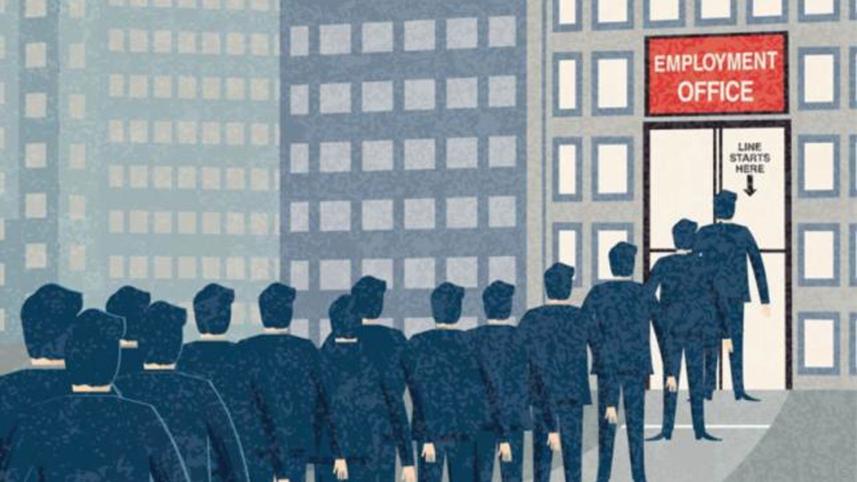Soaring youth unemployment can have disastrous outcome

With the "Great Lockdown" poised to cause the worst global recession in nearly a century, young Bangladeshis—who were already struggling with declining employment prospects even before Covid-19—are particularly at a disadvantage now, as many wait to begin their career or resume work in sectors that are partially or fully shut down. According to the International Labour Organization, the young are more vulnerable to falling labour demand and losing their livelihoods. Considering the manifold effects of this on the wider society, experts at an online seminar (webinar) recently suggested including the unemployed youth in the social safety net. They also said there should be interest-free loans to small and medium-sized enterprises (SMEs) operated by young people.
Their suggestions were based on a study that looked into the effects of Covid-19 on the youth of Bangladesh. The research identified six areas in which the pandemic is affecting the youth: health, education, employment, income, poverty, and domestic violence. The pandemic has affected all these areas in varying degrees. While each of them requires remedial steps, the employment factor is of particular concern amidst an extended lockdown. Over a crore people have arguably lost their income opportunities already. What will happen if the informal sector—where the majority of all employed youths are believed to be engaged—cannot be set back to its pre-Covid-19 state? What will happen to those who lost their jobs or facing layoffs? What will happen to the people who are waiting to enter work? The social, economic and mental health outcome of such a large number of individuals struggling without income or employment opportunities will be profound. It is, therefore, important that the government, training providers and employers work in tandem to address this problem urgently.
The government's stimulus package has neither provided any direct allocation nor offered a way forward for the young people. True, it has partially reopened the economy but it may be a long time before the benefit of a phased lockdown relaxation reaches the majority of young employment seekers. This being the case, we think the government should make robust, targeted and regional interventions to support young people into work. It should also have contingency plans to ensure that young people who have been unable to access work-based training do not fall through the cracks, by taking steps to widen access to skills development programmes free of cost. All this is necessary because, as experience shows, soaring youth unemployment can lead to myriad problems for a country.



 For all latest news, follow The Daily Star's Google News channel.
For all latest news, follow The Daily Star's Google News channel.
Comments